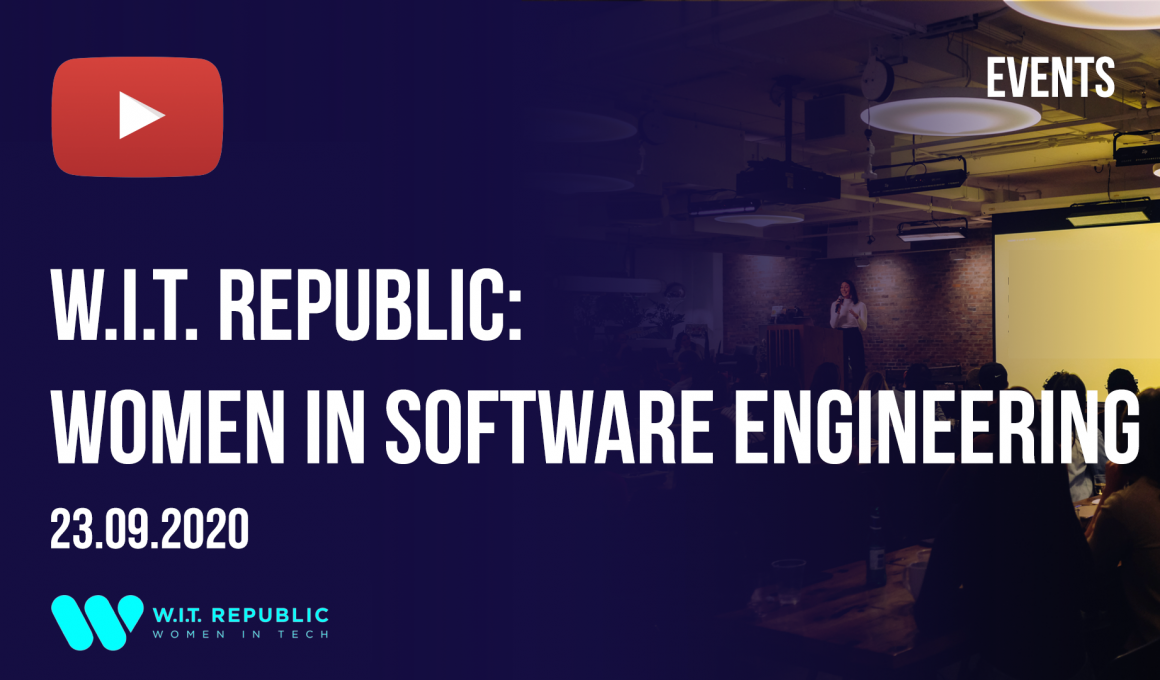Following the success of the first in the series, in September we hosted our second Women In Software Engineering meetups. We were delighted to be joined by two incredibly successful women in the cloud space; Jacquelyn Poplar, Developer, Team Lead at Booking.com, and Natalie Godec, Platform Engineer at Babylon Health.
You can learn more about Natalie’s journey into a career in tech, and her thoughts on AWS and GCP, as part of our WomenInTechQA here.
The event was a real success, with insights shared between both the speakers into the world of software engineering.
The Show Must Go On – Navigating a Career in Software Engineering
Jacquelyn began the event by talking about what she as learned during her career in the theatre and how that resonates with what she has also learned during her time in the tech industry.
The first piece of advice Jacquelyn gave was to ‘know your type’. Talking about her time in the theatre, Jacquelyn mentioned how she used to audition for every type of role and could not work out why she was not getting these parts. It came down to the fact that she wasn’t right for the roles. Knowing what genre of role suited her best; meant that she could practice her craft in that particular area, and progress within her career. Relating that to a career in the software engineering space, Jacquelyn emphasises that it is important to ‘know your type’, so that you can master it and then move on to another ‘type’ and repeat the process, so that you end up with multiple tools under your belt.
The second piece of advice was ‘Yes, and…’. This advice was centred around the concept of adlibbing, accepting what the other actors on stage with you are saying and going with the flow. When navigating a career in software engineering, Jacquelyn emphasises that it is important to led with ‘Yes and…’ in order to create new opportunities and grow within your career.
All the World is a stage. When directing a play, Jacquelyn uses techniques like the use of colour, in order to steer the audiences attention to where she would like it during the performance. This is similar to developing your user interface and the use of coloured buttons to grab your users attention. Jacquelyn highlights that is important to tell a story and focus the eye.
Always be audition ready. According to Jacquelyn theatre professionals are always looking for their next role, and as such need to be constantly prepared. This is a good mindset for software developers as well. Learn the skills that will get you hired, and practice; coding tests, interviews.
For the fourth piece of advice; make your own opportunities, Jacquelyn references her friend Sarah Cooper, who published her own books, started a blog, and is now getting her own Netflix special. Don’t wait for others and don’t ask for permission, make your own opportunities.
The final advice the Jacquelyn gave was around the premise of the show must go on. Rehearsals are important, they are where all the work gets done. The key points to this are: start with a good team, commit to the work that needs to be done, be professional and the magic will happen.
Opening the discussion to the floor, Jacquelyn talks about how teaching will develop your own development, as well as how the industry became exclusive to women.
How to Scale Your Cloud Without Breaking the Bank
The second talk of the event was given by Platform Engineer at Babylon Health, Natalie Godec. Natalie provided advice and a technical demo on how to scale your cloud without breaking the bank.
Talking about the main benefit of cloud, Natalie mentions how you can build fast, scale in seconds and only pay for what you use. Whilst this sounds amazing is it? Natalie goes on to discuss that when working in production and expanding into different areas a more accurate definition of the cloud is not that you pay for what you use, it’s how you pay for what you forgot to turn off. During her talk Natalie explains different methods that you can use when scaling your infrastructure, to avoid paying for what you aren’t using.
Natalie’s key take-aways for keeping costs down were:
- Tag everything
- Monitor your resource usage
- Monitor the cost per usage trends – some of the tools available to help with this are AWS Cost Explorer, GCP Billing, Grafana, Cloudability, during her talk, Natalie goes through how to utilise each of these tools to monitor costs.
- Consider using preemptible resource types
- Shut down your environments when they are not used
Whilst talking about monitoring your costs in Kubernetes, Natalie provided a technical demo of the commands that you could use to discover if your service needs the amount of memory that it requested.
Watch the full demo here.
During the networking session at the end of the event, Natalie talks about the use of service mesh’s for cost monitoring and discusses the benefits of AWS and GCP.
We’d like to thank everyone who attend the event, as well as our brilliant speakers Jacquelyn and Natalie for making the event such a success.
If you would like to get involved with our next Women In Software Engineering event, please get in touch!
